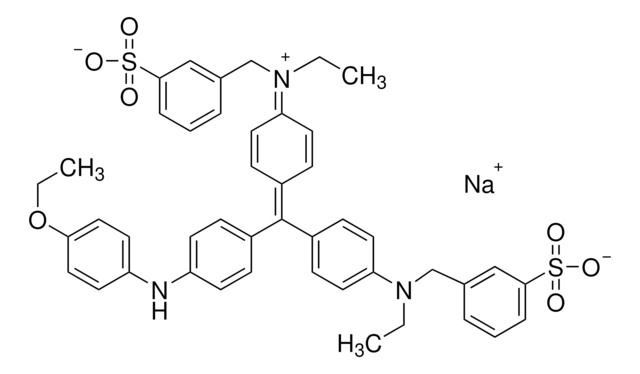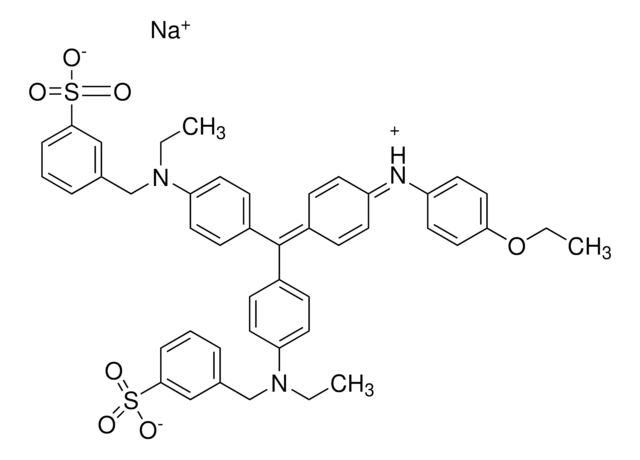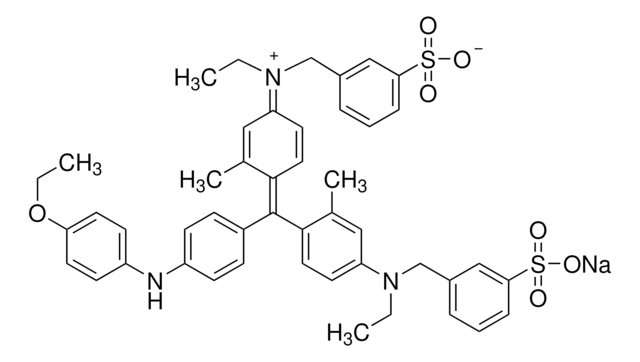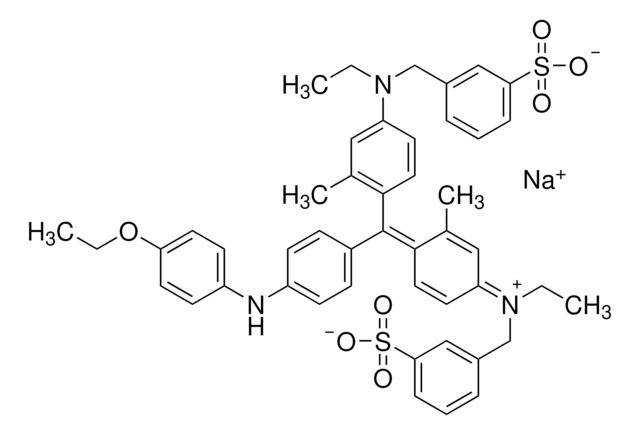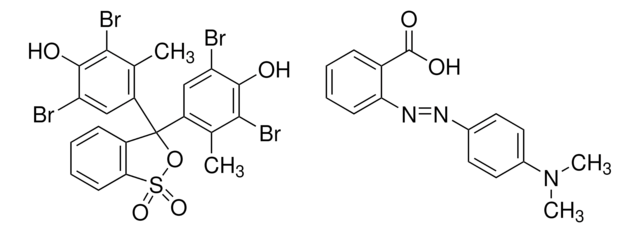B8647
Brilliant Blue R Concentrate
methanol solution
Sinónimos:
Brilliant Blue R, Acid Blue 83, Brilliant indocyanin 6B, Coomassie Brilliant Blue R
About This Item
Productos recomendados
product name
Brilliant Blue R Concentrate, suitable for SDS-PAGE, methanol solution
formulario
methanol solution
Nivel de calidad
color
dark blue
idoneidad
suitable for SDS-PAGE
aplicaciones
diagnostic assay manufacturing
hematology
histology
temp. de almacenamiento
room temp
cadena SMILES
[Na+].CCOc1ccc(Nc2ccc(cc2)C(\c3ccc(cc3)N(CC)Cc4cccc(c4)S([O-])(=O)=O)=C5\C=C/C(C=C5)=[N+](\CC)Cc6cccc(c6)S([O-])(=O)=O)cc1
InChI
1S/C45H45N3O7S2.Na/c1-4-47(31-33-9-7-11-43(29-33)56(49,50)51)40-23-15-36(16-24-40)45(35-13-19-38(20-14-35)46-39-21-27-42(28-22-39)55-6-3)37-17-25-41(26-18-37)48(5-2)32-34-10-8-12-44(30-34)57(52,53)54;/h7-30H,4-6,31-32H2,1-3H3,(H2,49,50,51,52,53,54);/q;+1/p-1
Clave InChI
NKLPQNGYXWVELD-UHFFFAOYSA-M
¿Está buscando productos similares? Visita Guía de comparación de productos
Aplicación
Brilliant Blue R Concentrate has been used for protein band detection after nondenaturing gradient gel electrophoresis, isoelectric focussing and SDS-PAGE (sodium dodecyl sulfate polyacrylamide gel electrophoresis).
Reconstitución
Información legal
Producto relacionado
Palabra de señalización
Danger
Frases de peligro
Clasificaciones de peligro
Acute Tox. 3 Dermal - Acute Tox. 3 Inhalation - Acute Tox. 3 Oral - Eye Irrit. 2 - Flam. Liq. 2 - Skin Irrit. 2 - STOT SE 1
Órganos de actuación
Eyes,Central nervous system
Código de clase de almacenamiento
3 - Flammable liquids
Clase de riesgo para el agua (WGK)
WGK 3
Punto de inflamabilidad (°F)
57.2 °F - closed cup
Punto de inflamabilidad (°C)
14 °C - closed cup
Equipo de protección personal
Faceshields, Gloves, Goggles, type ABEK (EN14387) respirator filter
Elija entre una de las versiones más recientes:
¿Ya tiene este producto?
Encuentre la documentación para los productos que ha comprado recientemente en la Biblioteca de documentos.
Los clientes también vieron
Nuestro equipo de científicos tiene experiencia en todas las áreas de investigación: Ciencias de la vida, Ciencia de los materiales, Síntesis química, Cromatografía, Analítica y muchas otras.
Póngase en contacto con el Servicio técnico